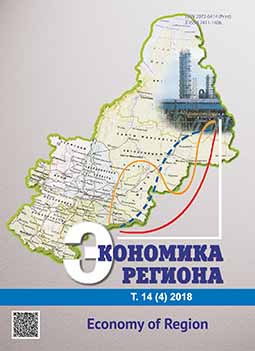Финансовая и социальная успешность выпускников университетов в Уральском регионе: проблемы и пути решения
Financial and Social Success of University Graduates in the Ural Region
Author(s): Gavriil Aleksandrovich Agarkov, Daniil Gennadyevich Sandler, Anastasia Dmitrievna SushchenkoSubject(s): Social Sciences, Economy
Published by: Институт экономики Уральского отделения Российской академии наук
Keywords: employment;regional labour market;graduates, young professionals;unstable employment;higher education;educational trajectories;professional trajectories;human capital;
Summary/Abstract: The quality of human capital is a priority factor for the development of modern economy. Apparently, the system of higher education has a significant impact on the human development. There are a number of approaches to assessing this impact and to enhancing its positive outcomes. Studying the professional and social trajectories of graduates allows obtaining an objective picture of a practice-oriented influence of higher education on the human capital formation. The article explores young professionals’ career development six months after graduation. We analyse the characteristics of young professionals’ occupational and educational trajectories through examining the indicators of graduates’ employment monitoring in 2014–2016. The data are supplemented by the results of the graduates’ survey conducted in 2017 using administrative data. The data were processed using the methods of cluster and regression analysis, classification method and expert estimates. We have disproved the hypothesized significant impact of graduates’ performance at the university and their training basis (fee-payment or budgetary funding) on the financial success of graduates. Furthermore, we have identified five tendencies. Firstly, the graduates are increasingly involved in unstable employment. Secondly, working experience has a significant impact on successful employment. Thirdly, graduates continue their training to adapt themselves to the labour market. Fourthly, the financial and social success is highly dependent on the choice of training specialities, which are in demand in the modern economy. And last, there is a high mobility among graduates. Up to 30 % of them are moving to another subject of the Russian Federation. The study results can be applied to improve the quality of bachelor and master degree programmes, taking into account the identified specifics of young professionals’ unstable employment and to determine areas for effective government investment in the development of the Ural region human potential.
Journal: Экономика региона
- Issue Year: 14/2018
- Issue No: 4
- Page Range: 1312-1326
- Page Count: 15
- Language: Russian

